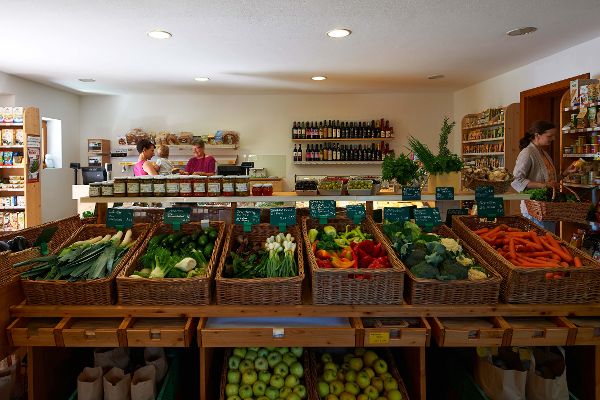Diversification to include non-agricultural activities

Especially in periods of volatile agricultural prices and markets, small-structured holdings benefit from being able to rely on several sources of income. Deliberate diversity enhances competitiveness and ensures forward-looking, crisis-proof development.
Diversification has a long and successful tradition in Austria. It comes in many different guises: from rural tourism, direct marketing via community services all the way to schools on the farm, seminars held by female farmers and green care.
Direct marketing
A KeyQUEST study in 2016 determined that 27 percent of the farmers (36,000 holdings) market eggs, milk, cheese, sausage, schnapps, and lots of other delicacies directly in their own farm shops. And there is a trend towards professionalisation: the number of 'high-intensity direct marketers' (17,000 holdings) generating more than 51 percent of their income through direct market is rising.
Rural tourism
In Austria, around 9,900 farms currently offer approx. 114,000 guest beds in rooms or holiday apartments – of these, some 2,350 holdings are signed up with the farm holiday association Verein Urlaub am Bauernhof. Tourism and agriculture are closely tied in with one another; both sectors strongly determine the appearance of rural areas. The Plan T – Master Plan for Tourism developed by the Federal Ministry for Sustainability and Tourism (BMNT) recommends improving and deepening cooperation between agriculture and tourism.
Green care
Green care is an innovative marriage of agriculture, education, health and social aspects – taking the form of nursing care and childcare services on farms, for example. It creates jobs and takes a load off families – a win-win situation for the holding and the entire region.
Subsidies in the framework of rural development
The Federal Ministry for Sustainability and Tourism (BMNT) follows a holistic approach. Endeavouring to increase the value added of agricultural holdings through diversification requires courage and stamina. Professional advice is thus all the more important and specifically supported by the ongoing Rural Development Programme (LE). Special projects also promote additional qualification and continuing education. In most cases, investments in the farm or farm adaptations are necessary. These are subsidised at a rate 20 to 30 percent. Last but not least, the following are often of crucial importance: networking between the holdings, quality assurance and a joint brand image as well as the development of new innovative diversification products. Overall, funds of around 80 million Euros are available for diversification via the LE 14-20 (Rural Development Programme).